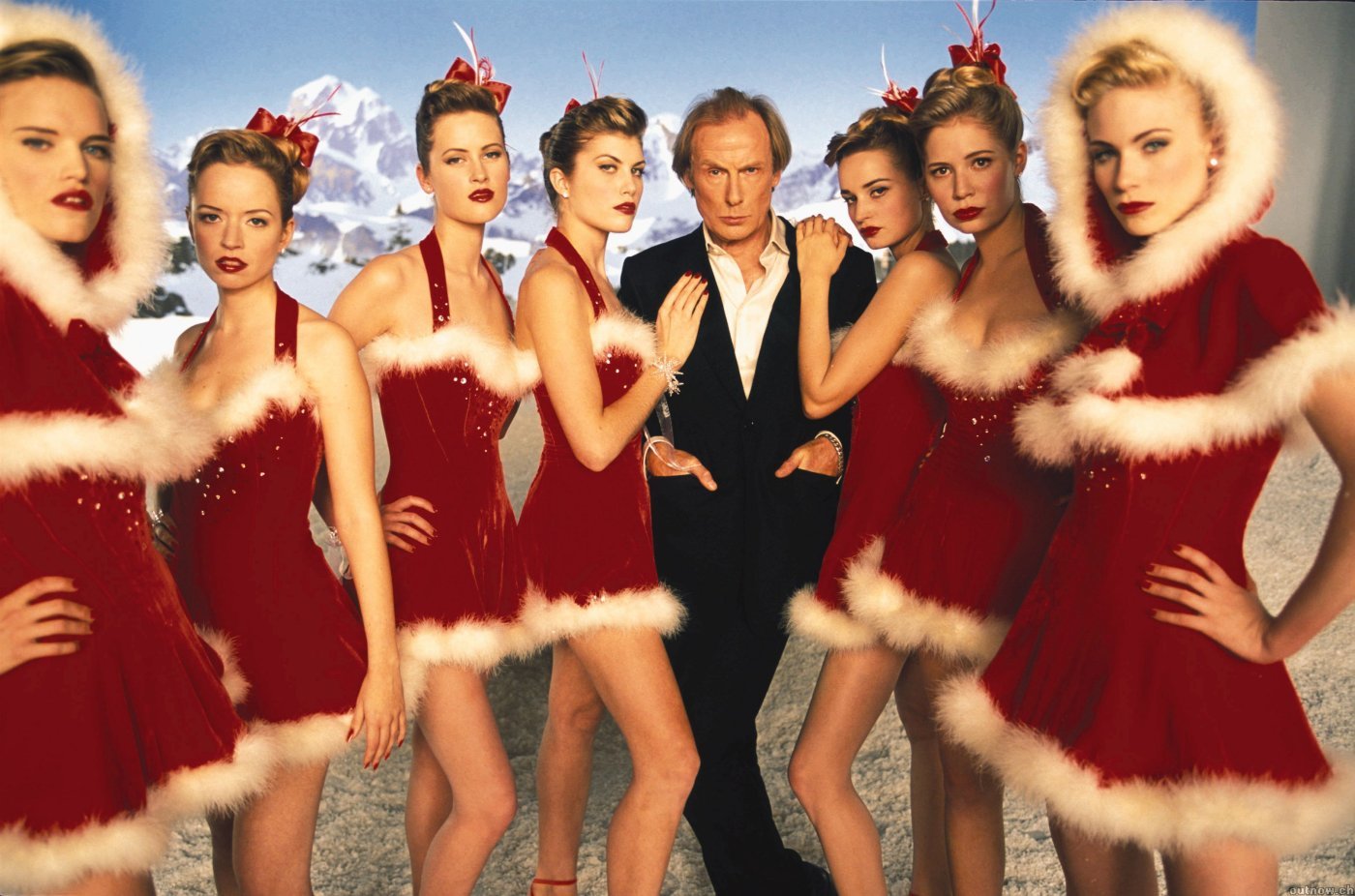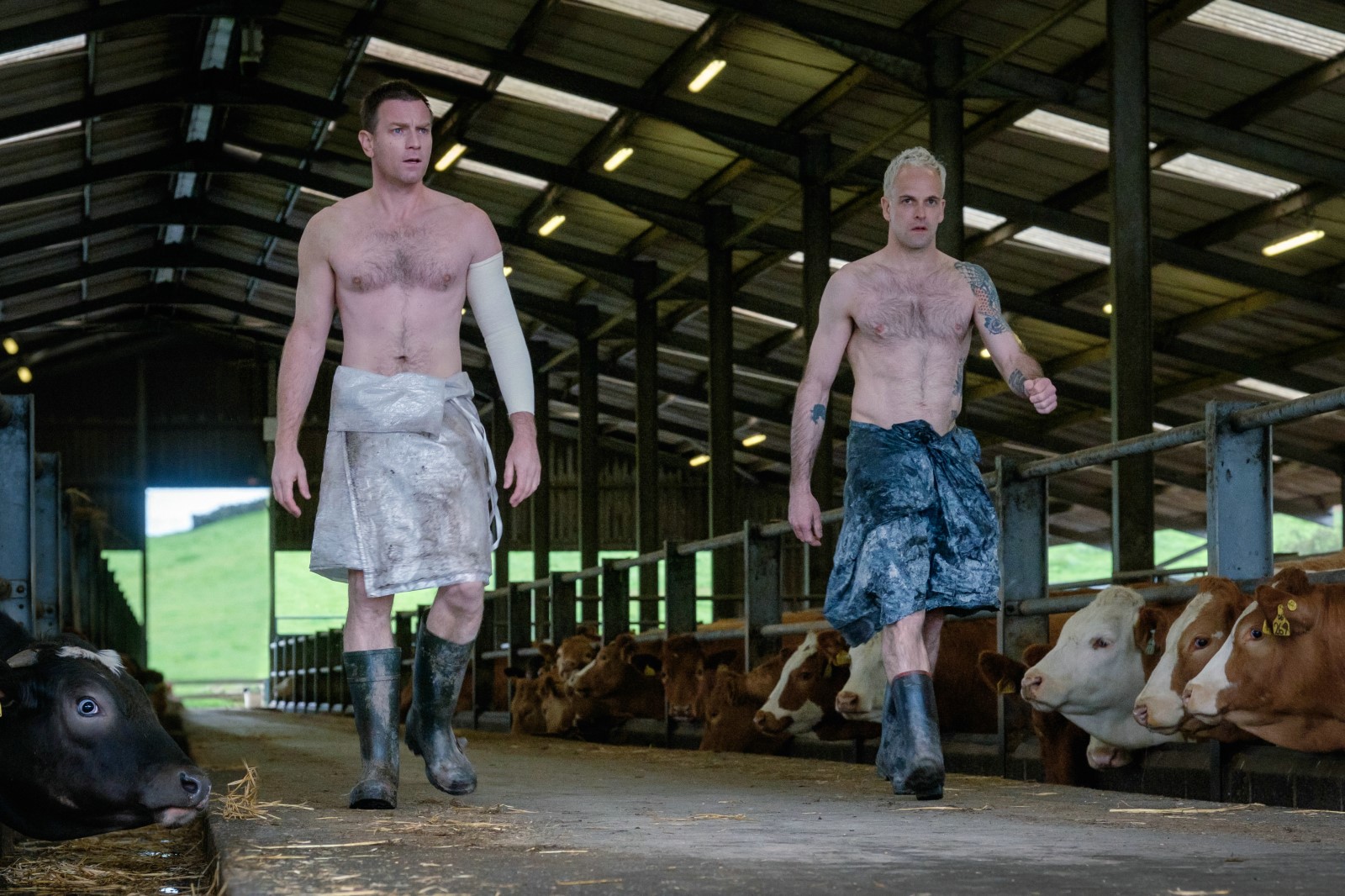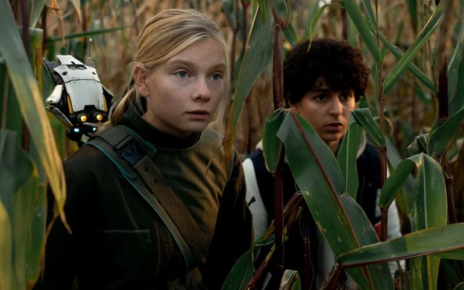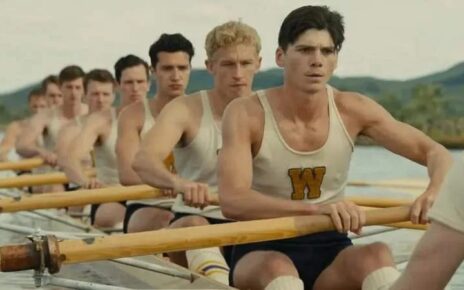I don’t need Christmas to love this film. Not at all. While Love Actually usually gets tossed into the Noel mix with Elf and Home Alone, and generally gets ranked somewhere in between Die Hard and It’s a Wonderful Life on the holiday list, I need no premise of Dickensian ghosts or chronological gate keeper to stick this DVD in the player; Love Actually is a wonderful film whether you see it on Christmas Day or the Eighth of September. I have no problem calling it the best romance film of the 21st century.
Of course, Love Actually isn’t a single film, but nine of them, each attacking a different facet of romance – attraction, wonder, infatuation, lust, compatibility, self-expression, greed, companionship, loyalty, and the like. To some, romance is all of these things; to others, less. The collective film is all of this and more in nine not only entertaining, but oft hilarious, smaller and mildly connected brief essays on what love is all about:
Single White Prime Minister
Hugh Grant has moved into 10 Downing (luckily) well before Brexit and Coronavirus. This guy doesn’t have to deal with a major political crisis and, hence, has the luxury of falling in love. Enter Martine McCutcheon, a staffer who would have been canned on Day 1 by any other self-respecting P.M. But David (Grant) is the rare deep-down-nice-guy politician, and –besides- Natalie (McCutcheon) is kinda cute…what’s the harm? This is arguably the most problematic of the tales in Love Actually because it speaks indirectly to abuse of power and the faults of Bill Clinton. This minimovie has contrasted David, an awkward, single, and mildly charismatic leader with Billy Bob Thornton, the current US President here depicted as a cad and a roué. Geez, remember when the worst thing a president could be was a roué? God, I miss those times.
A Rolling Stone Gathers No Loss
Of the nine short films, this one is the least romantic and the most comic. Making the most of his biggest role ever, Bill Nighy plays rock relic Billy Mack with a gusto and self-deprecation that should be a model for all aging rockers. Look, dudes, you’re gonna get old; you’re gonna realize at least some of your music was a pile of crap, and you’re gonna realize that –for whatever reason- people gave you money to indulge a hobby. If that doesn’t make you humble, nothing will. So have the good sense to have a laugh at yourself and the process.
whatever reason- people gave you money to indulge a hobby. If that doesn’t make you humble, nothing will. So have the good sense to have a laugh at yourself and the process.
Murder, er, Romance, He Wrote
Slasher fiction novelist Colin Firth finds himself cuckholded by his brother and decides to escape to Portugal to write and forget. That’s when he finds himself attracted to the housekeeper (Lúcia Moniz) at his retreat. He doesn’t speak Portuguese; she doesn’t speak English, but they both speak the international language: fiction.
Searching for Claudia Schiffer
Widower Liam Neeson is all over this story, but it’s not about him. His stepson Sam (Thomas Brodie-Sangster) has channeled his grief at losing mom into the grief of unrequited love. Not sure I would have made mom such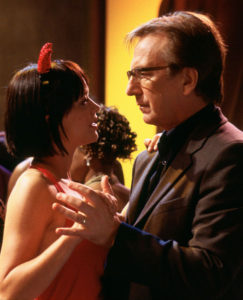 an afterthought in this vignette, but I sure know what it was to be too young and too smitten at the same time.
an afterthought in this vignette, but I sure know what it was to be too young and too smitten at the same time.
Snape’s Horcrux
Alan Rickman discovers he’s on the receiving end of office crush from Mia (Heike Makatsch), the kind of vixen no intelligent man can ignore. We see the happily and comfortably married Snape constantly questioning, “How far in is too far in?” when bait is dangled. As the temptation arc continues, this minifilm becomes less about the subjects and more about Rickman’s wife, Emma Thompson, who -in under five minutes of screentime- gives perhaps the greatest performance of her impressive career. To feel nothing for her character is to be either intensely misogynistic or completely without emotion.
Body Double Entendre
John (Martin Freeman) and Judy (Joanna Page) are professional film stand-ins who start a relationship while a film is shot around them. The joke here is that the film being shot is clearly either pornography or some sort of erotic R, so we get the schoolboy infatuated innocence of Martin Freeman contrasted with scenes in which he is asked to simulate several sexual scenarios.
Colin Frissell Strikes Out
Kris Marshall is a moron who has convinced himself –with no proof whatsoever- that English birds are for the birds and American girls are where it’s at; all he has to do is show up randomly in the land of Trump and the rest will take care of itself. This is the most shallow story on the docket, but arguably the funniest as well.
Lovefail, Woman
An executive in Snape’s place of business, Laura Linney, has also developed an office crush. Geez, there’s like eight people who work in this place and four are interested in affairs; what kind of office is this? Laura is forced to choose, essentially, between her crush and her institutionalized brother. While this is probably a false choice in reality, the ten minutes here speak to film’s biggest question: “What is love?” Love is, of course, many things, and not all of them involve a boink and a cigarette. If it weren’t for this and the last tale I describe, I’d say Love Actually has no soul.
Lovefail, Man
Andrew Lincoln, best man at the wedding of Keira Knightley and Chiwetel Ejiofor, is secretly in love with Keira and has no way to deal with it. This is probably the story on which most people base their devotion or lack thereof to Love Actually. The issue is how can we support a man in love with a woman he can’t have and, thus, shouldn’t pursue? My question is how can you not? I ask my readers: Have you never wanted something you couldn’t have? Never? You can’t guess how empathy feels? The genuine heartache in this tale is the epitome of the agony of unrequited love and I respect man and film enough for coming to terms with the extent of his feelings and resolving that he’s done acting on them. This is my favorite story among the lot and the climax is so iconic that it gets parodied every Christmas season. And somewhere I like to imagine a universe where Mark (Lincoln) got along with Juliet (Knightley) long before she’d ever met Peter (Ejiofor). Alas, life is frequently as complicated as love.
With Love Actually, Richard Curtis solidified his reputation as both the best writer and best director of romance in the biz. It didn’t last; nothing does. But I sure-as-Hell would choose Curtis, still, to anything with the name Nicholas Sparks on it.
It is very possible, even likely, that if you took each one of these fifteen minute films and made it into a feature length romance, it wouldn’t work…and yet, I guarantee a 90-minute version of any one of these nine films would be better than your average screen romance. Let me put it this way, which would you rather see … Single White Prime Minister or a film about a seventeen-year-old dying of cancer? Unlike any Garry Marshall ripoff of this tale, there isn’t a dog in this pack; every one of these stories makes a winning short film on its own. Honestly, I’d give Love Actually four stars if it showed an ounce more diversity, like more color in the cast or an LGBTQ relationship; I think these are legitimate quibbles – most of the other reasons people complain about Love Actually come down to exactly one thing: you’re uncomfortable with romance. It’s ok. I’ve been there, too. Eventually you grow up.
Romances make many say, “Bye bye.”
It’s not our usual choice to gratify
But if you’re through Dying Hard
Or thwarting burglars in your yard
Maybe give Love Actually a try
Rated R, 135 Minutes
Director: Richard Curtis
Writer: Richard Curtis
Genre: The movie you put on at Christmas when all the Die Hard fans have left the room
Type of being most likely to enjoy this film: Romantics, hopeless or otherwise
Type of being least likely to enjoy this film: The people who don’t want to know the difference between a genuine film flaw and “something I need to be a film flaw”

